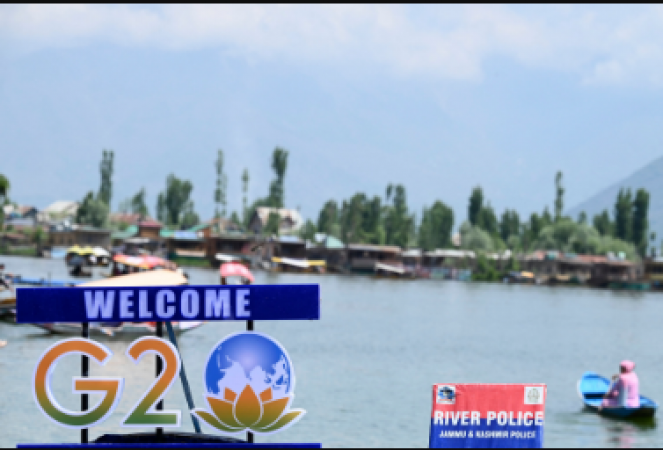
Muzzafrabad: According to Pakistan's Foreign Minister Bilawal Bhutto Zardari, India is "abusing" its G20 presidency by hosting a tourism conference in the region of disputed Kashmir that it administers.
It is the first diplomatic event to take place in the region since Pakistan cut off trade and diplomatic ties with New Delhi in 2019, when it imposed direct rule over the portion of Kashmir it controls that has a Muslim majority and enacted a strict security lockdown.
In an interview given on Monday in Muzaffarabad, the capital of Kashmir administered by Pakistan, he said, "I wish I could say I was surprised, but I think that this is a continuation in what is now becoming a norm, of India's arrogance on the international stage.
Also Read: Truck driver detained after colliding with barriers close to the White House
If they believe that holding one event in occupied Kashmir will allow them to silence the voice of the Kashmiri people, then I believe that they are seriously mistaken. They are abusing their G20 presidency to advance their colonial agenda.
Tens of thousands of civilians, soldiers, and Kashmiri rebels have been killed in the conflict, which has engulfed the Indian-controlled region for decades and been fueled by an insurgency that wants Kashmir to become independent or merge with Pakistan.
A smaller portion is under the control of Pakistan, a non-G20 member, which claims that holding the tourism conference there from Monday through Wednesday is against international law, UN Security Council resolutions, and bilateral agreements.
The European Union and the 19 largest economies in the world make up the G20 participants, who have been "put in a pretty awkward spot," according to the 34-year-old Bhutto Zardari.
Also Read: Seven people who were seeking shelter from the rain died when the roof of a Thai school collapsed
He said, referring to Russia's invasion of Ukraine, "Those countries who make it a point to remind us and protest how outrageous it is that international law has been violated in Europe: I believe that they should be just as outraged when international law is violated in Kashmir."
China has sided with Pakistan in denouncing the meeting to promote tourism in the region, which is well-known for its lakes, meadows, and snow-capped mountains. China also claims the entire Indian state of Arunachal Pradesh as being a part of Tibet.
India has invited the international community to an expansive, heavily guarded venue on the shores of Dal Lake in Srinagar in an effort to project what officials have described as "normalcy and peace" in the violently unstable area.
Residents have complained about the increased security measures over the last week. Numerous people, including thousands of shopkeepers, have received calls from authorities advising them not to show any "signs of protest or trouble." Hundreds have been detained in police stations.
"One of the most militarised zones in the world can never be seen as normal," Bhutto Zardari said. Since their creation in 1947 at the time of the division of the Indian subcontinent, the neighbours in South Asia have engaged in three wars.
The Kashmiri insurgency has largely been put down since India's 2019 constitutional changes, though young men continue to join it. In what critics claim to be a drastic curtailment of civil liberties by India, dissent has been criminalised, media freedoms restricted, and public protests limited.
Any possibility of improved relations between the two nations was ruled out by Pakistan's foreign minister unless New Delhi reversed the status change of Indian-controlled Kashmir.
"Until this topic is addressed, it really stands in the way of peace in all of South Asia," said Bhutto Zardari, the son of assassinated former prime minister Benazir Bhutto and the grandson of ousted and executed former prime minister Zulfikar Ali Bhutto.
Without it, "meaningful dialogue" on shared threats like militancy and accelerating climate change could not start.
Narendra Modi, the Indian prime minister, who came to power in 2014, has increasingly used religious polarisation to mobilise the Hindu majority, issued the order for the crackdown in Indian-administered Kashmir. In the upcoming election, he will run for a third term in office.